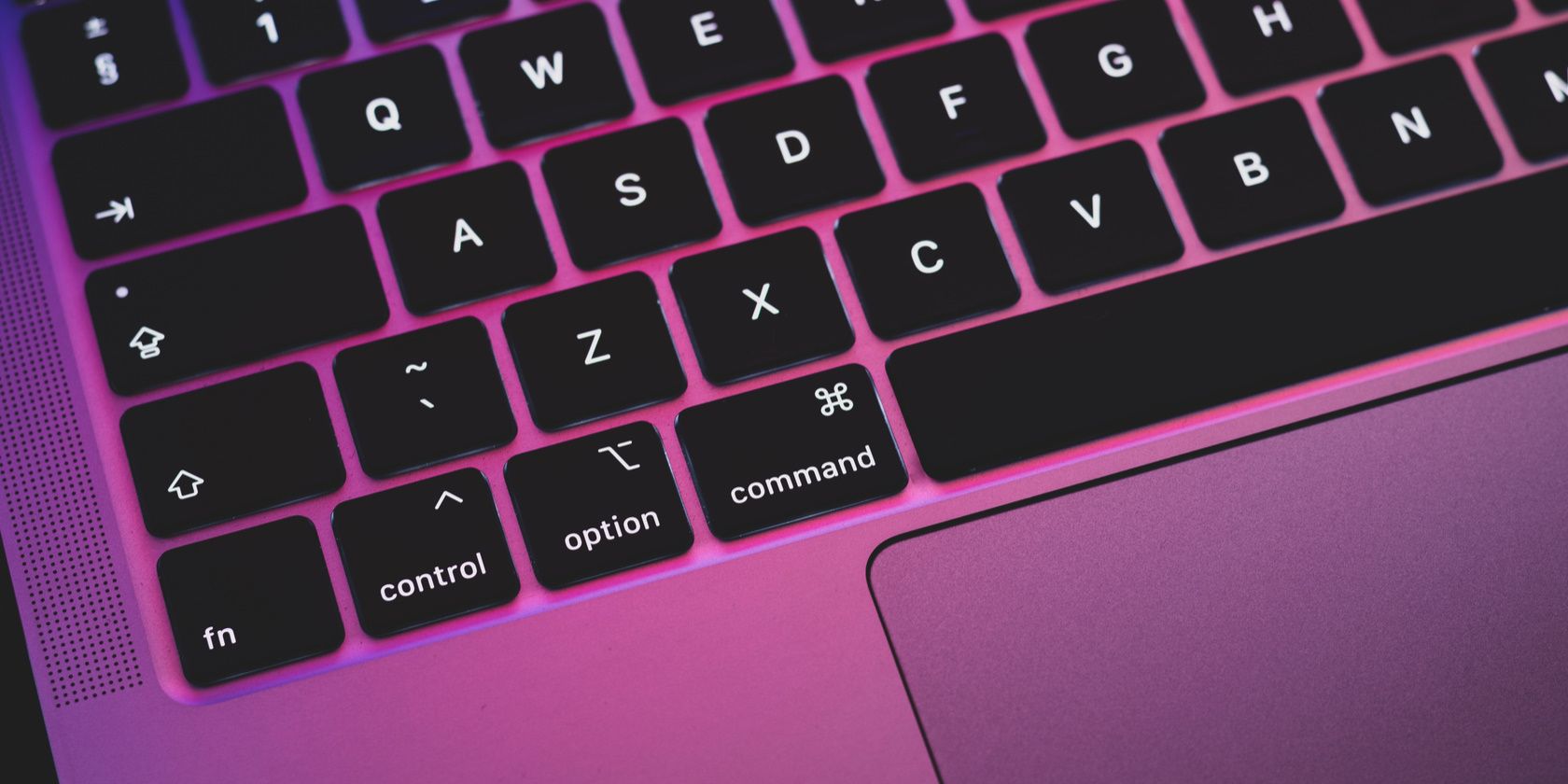
Professional Typewriter's Dream: The Ultimate Guide to the Lofree Flow Mechanical Keyboard Review

Professional Typewriter’s Dream: The Ultimate Guide to the Lofree Flow Mechanical Keyboard Review
Key Takeaways
- The Lofree Flow keyboard delivers a wonderful typing experience due to its sturdy frame, smooth keycaps, and linear switches.
- It is designed for writing, not gaming, with customizable backlighting, but the lack of customizable settings may be frustrating.
- Priced at $159, this minimalist keyboard is geared toward people who do a lot of typing and those who might be able to overcome some noticeable flaws.
The Lofree Flow mechanical keyboard makes a lot of opinionated choices and has some potential flaws, and yet, it’s still a great choice because it gets the basics right. It just feels good to type on. Its sturdy frame, smooth keycaps, and responsive action make it a worthy choice for minimalists looking to get into a groove.
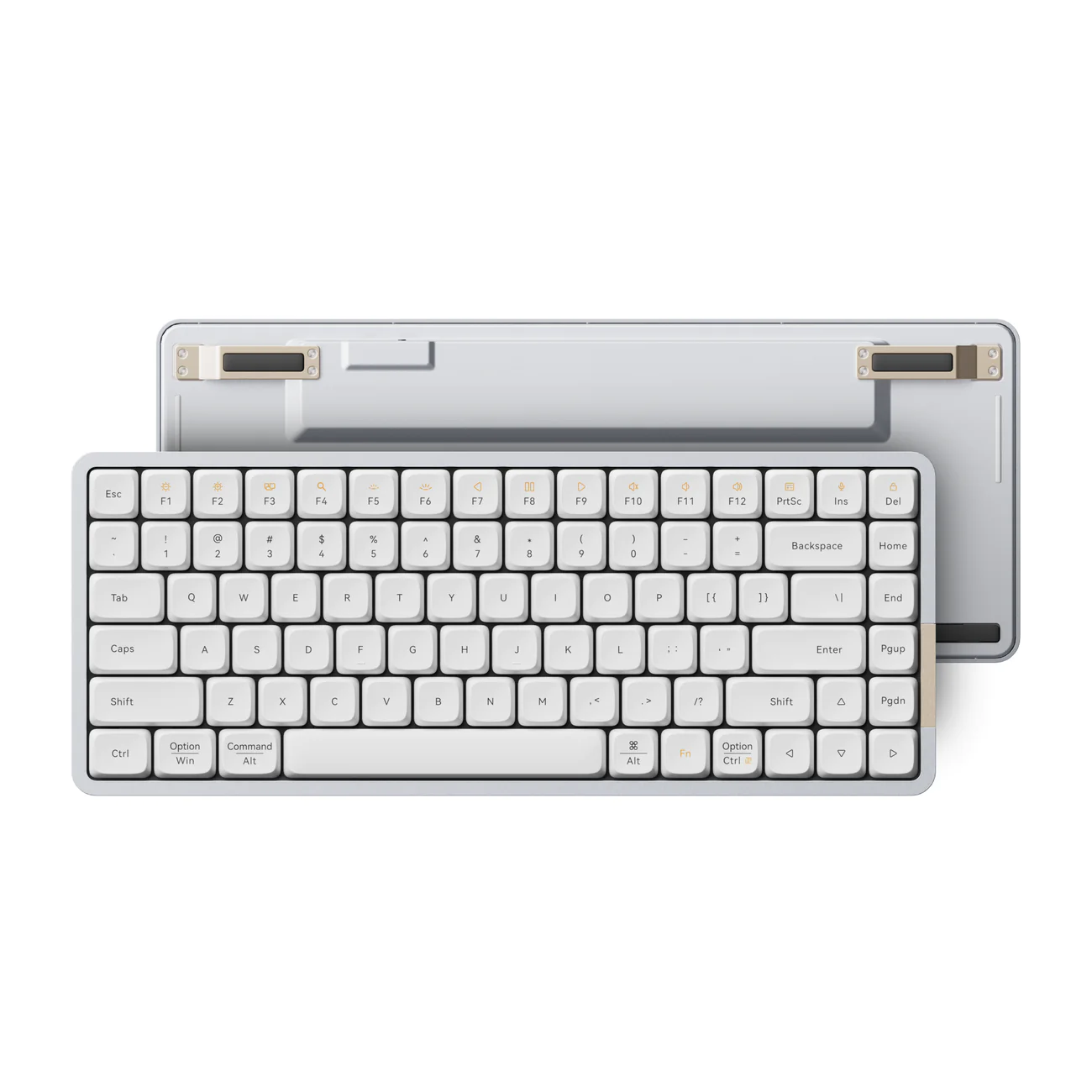
Lofree Flow
7/ 10
The Lofree Flow is a low-profile mechanical keyboard that features RGB side and back lighting, hot-swappable switches, and an all-aluminum design.
Switch options
Ghost (linear) Phantom (Tactile)
Colorways
White and black
Backlight
Yes, single color
Supported operating systems
Mac, Windows, iOS, Android
Hot-swappable
Yes
Battery capacity
2,000mAh
Connectivity
USB-C and Bluetooth
Software customizability
No
Dimensions
12.44 x 4.96 x 0.96in (316 x 126 x 24.5mm)
Weight
1.25lbs (568g)
Number of Keys
84
Battery life
40 hours
Pros
- Fantastic switches make for responsive typing
- sturdy aluminum case
- Pleasing sound that isn?t too loud overall
Cons
- Wireless sleep period feels too short
- No software for key customization
- Limited and lacking lighting
Expand
A Minimally Designed Keyboard
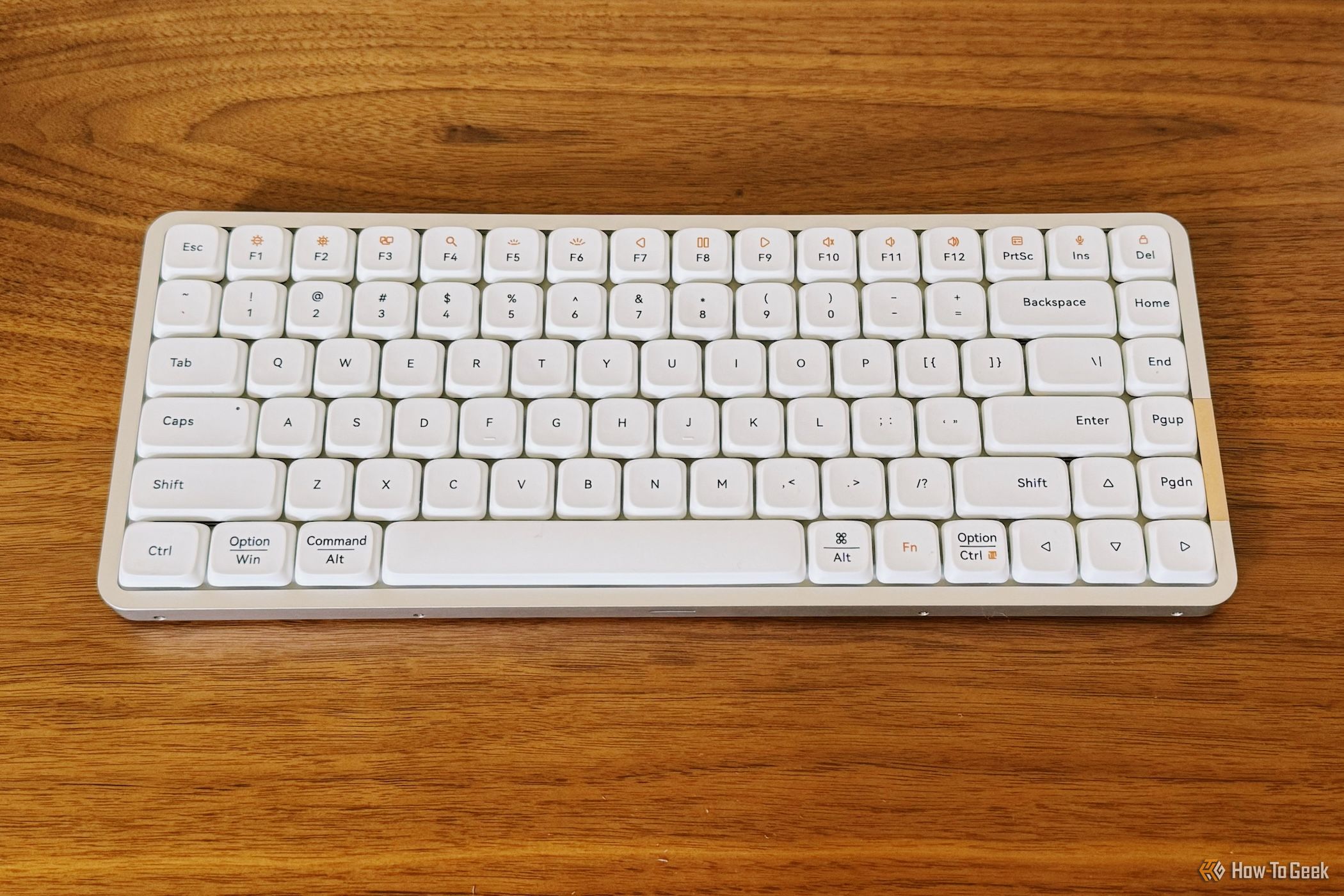
Tyler Hayes / How-To Geek
On its surface, the Lofree Flow mechanical keyboard isn’t flashy or even a very unique appearance. It does, however, have a classic, sophisticated look that sticks to a minimal design with an all-aluminum body.
The body is 10mm thick and the keyboard has a 3.9-degree tilt to it. That’s worth noting because, unlike plenty of other keyboards, the back risers aren’t adjustable. In fact, I would say the angle of the keyboard is good, which is foreshadowing for nearly every other aspect of it. The choices that Lofree made for the Flow are pretty good but are fairly set and unchangeable.
Inside, the white variant board uses linear Ghost switches. The Kailh Full POM switches are low-profile pieces with the ability to self-lubricate. The goal is for increased smoothness over time. I found the Ghost switches to be as advertised, with an inherent smoothness to them. They’re noisier than some “quiet” options, but certainly not loud and or clacky.
As would be expected, the switches are hot-swappable, so if you do want to change them out later, you can. Although the particular switches here are one of the main reasons to buy this keyboard in the first place.
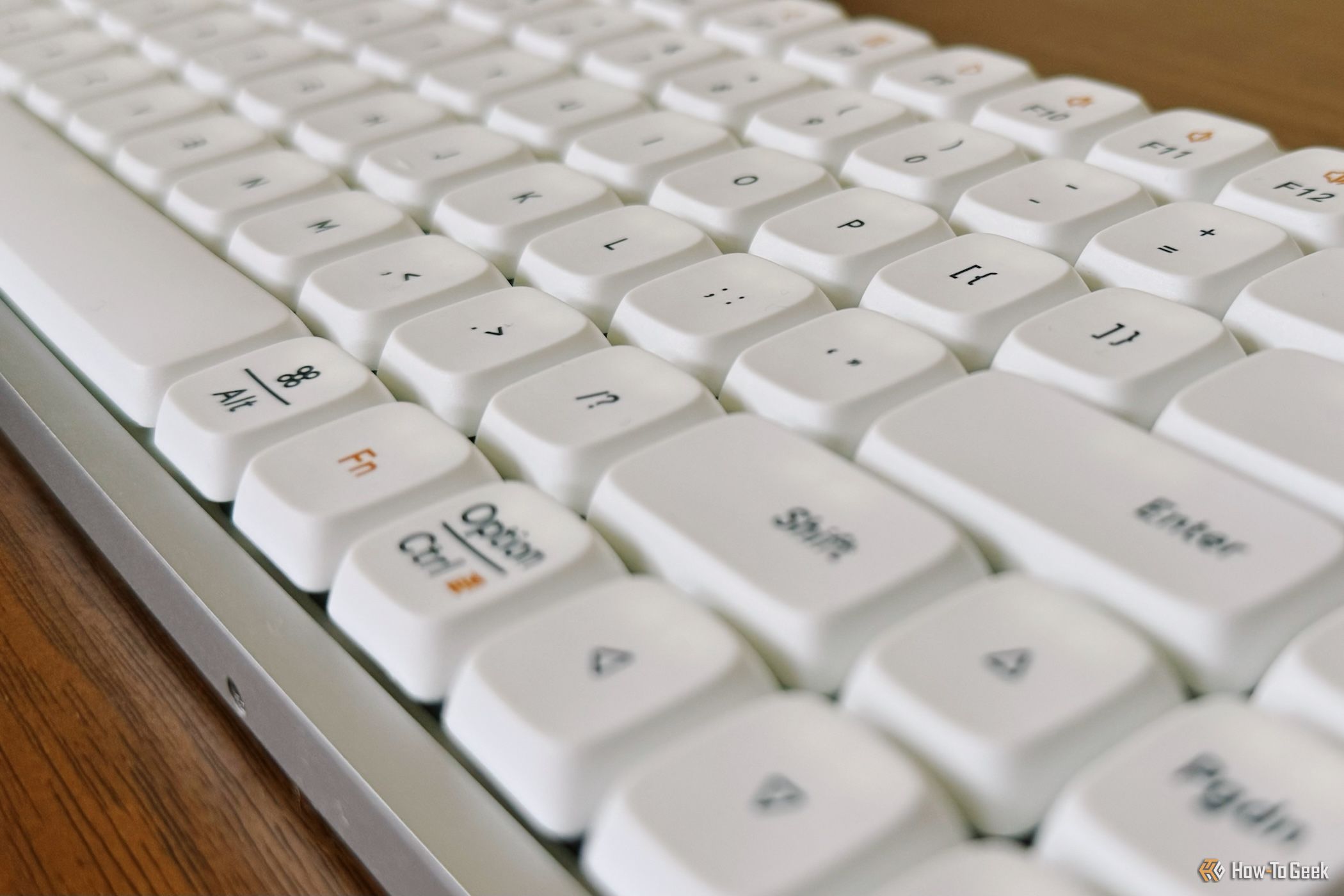
Tyler Hayes / How-To Geek
Lofree says the PBT keycaps utilize a “five-sided dyb-sublimation,” which allows for advanced printing while remaining durable. Durability is still to be determined, so I won’t make any wildly early predictions there after only several weeks of testing.
The Flow keyboard does have a gasket-mount low-profile design. It did feel comfortable to type on for long periods. The Flow weighs 568 grams or about 1.25 pounds in total. The company advertises on-the-go typing, but I think it’s much too heavy to commute with.
The good news is that the hardware is great on the whole. All of its pieces work together to form a really brilliant typing experience that might just be enough to overlook some of the other very real flaws.
Typing Rather Than Gaming
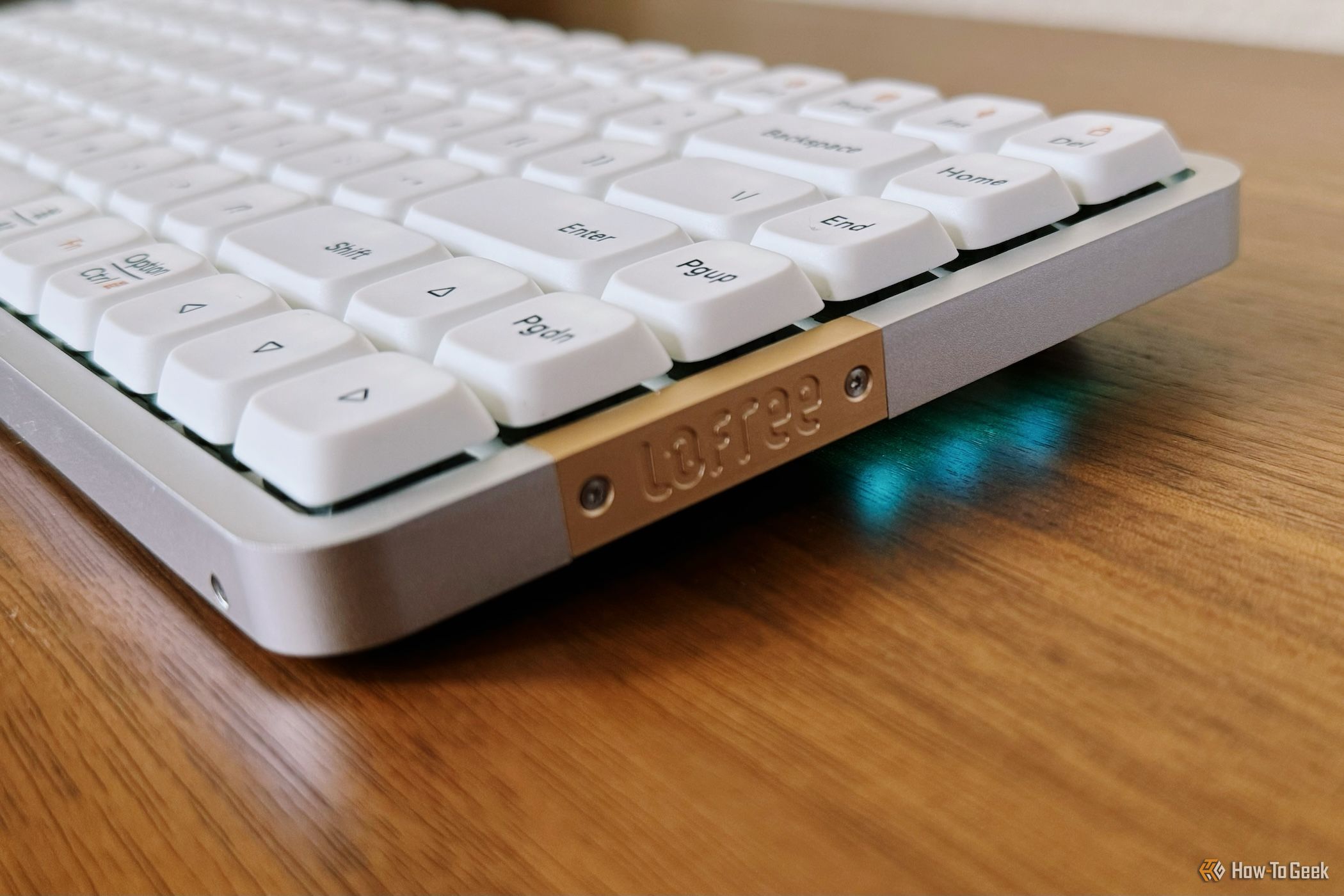
Tyler Hayes / How-To Geek
Beyond the steady white backlight, adjustable to varying strengths, there are not many features of the Flow keyboard itself. It has media keys, but no knob. The draw is meant to be the typing experience.
The RBG side lights can stay lit or pulse slowly, but they aren’t really bright enough to be visible during the day. I’m not opposed to fun lighting, but these side lights, shining down from the bottom of the frame, barely count as fun and, in a lot of lighting conditions, are basically useless.
That’s one reason I feel like this keyboard is specifically for writing essays, long-form content, or code, where the emphasis is on getting into a groove and not being distracted by the tool you’re using to accomplish a task.
The other reason the Lofree Flow is distinctly not a gaming keyboard is that it seems to have high latency, even when wired. This is an area ripe for improvement with the eventual second version because it would be nice to use it for multiple things if need be. (Here are some other keyboard options for gamers if that’s ultimately what you’re looking for.)
But there are plenty of other things that make this keyboard less satisfying overall when it’s not being used for continual typing. For one thing, if you stop using it for too long, somewhere in the range of ten minutes, the wireless connection goes to sleep, and it needs a keypress or two before it’s awake again. In theory, this isn’t a huge deal, but over time it becomes increasingly annoying. There were plenty of times during meetings or research periods when I went to write again and was a few words in before I realized no words had been typed. It’s the kind of thing that will get you or that’ll be the most noticeable at the most inopportune times.
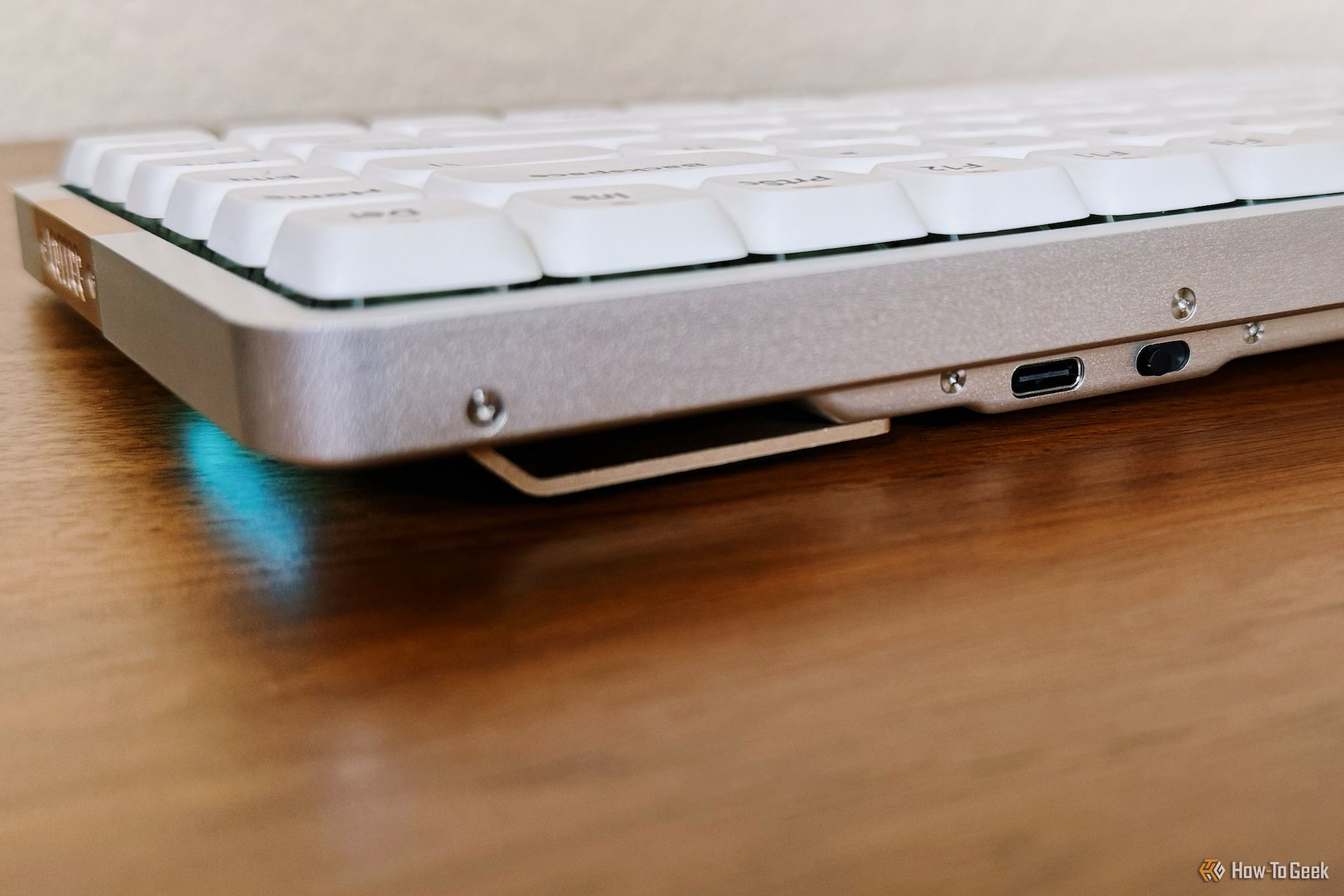
Tyler Hayes / How-To Geek
This seems to be in service to the Flow’s reported 40 hours of battery life, but I would gladly trade a few of those hours for it never going to sleep while my computer was on and awake.
The unfortunate news is that there’s no way to customize the sleep settings or anything else on the board, for that matter. There’s no first-party software or compatibility with third-party software. That means there’s also no way to turn the “PrtSc” key into something more useful for your workflow. I couldn’t nullify or transform the home key right next to the backspace that I would hit fairly often in the beginning.
Price and Availability
The Lofree Flow keyboard retails for $159 on its own website and $169.99 on Amazon. It’s available in white or black colors, each with different switch types.
Should You Buy the Lofree Flow Keyboard?
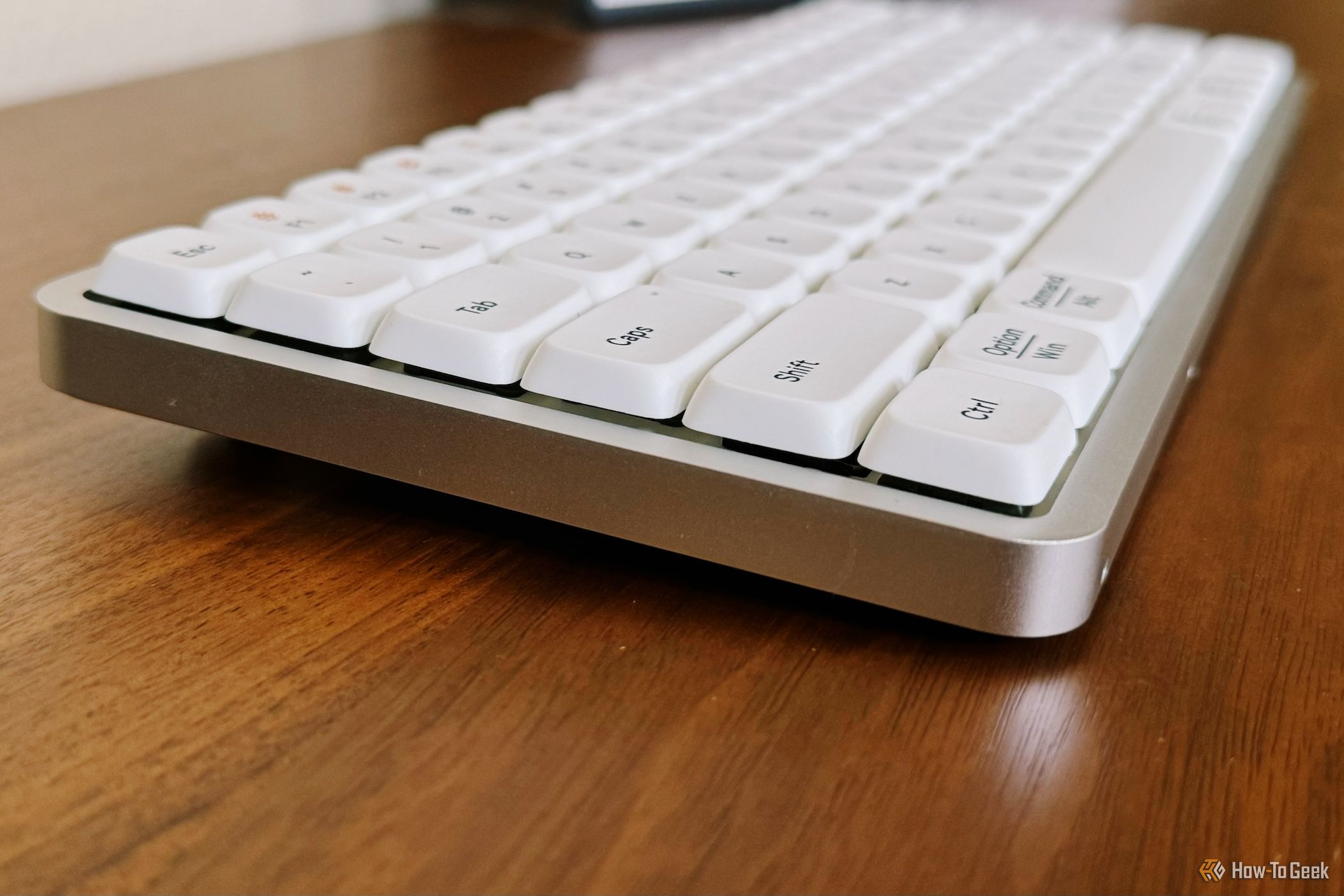
Tyler Hayes / How-To Geek
It should be pretty obvious that in testing a keyboard, one of the best opportunities for testing would be to write this review with it. I did. I also used it to write some 10,000 words about other products and services. I loved my actual writing time with the Lofree Flow keyboard.
That said, the problem is all the other times surrounding the actual typing when its quirks and missteps showed themselves. Those things really made me consider whether this keyboard was worth its look, feel, and sound. If you do a lot of typing for work or pleasure, the pros probably outweigh the cons. If you don’t write longer form things often, be it school papers, articles, or code, then you’ll probably end up at least slightly more frustrated than not. This keyboard is great for getting in the flow and staying there.

Lofree Flow
7/ 10
The Lofree Flow is a low-profile mechanical keyboard that features RGB side and back lighting, hot-swappable switches, and an all-aluminum design.
Also read:
- [New] 2024 Approved Diverse Technology Scrutiny EaseUS Edition
- [Updated] Seamless Techniques for Saving FaceTime Chats Live
- [Updated] Step-by-Step Guide to Initiating a TikTok Stream From Desktop
- [Updated] The Comprehensive PowerDirector 2024 User Guide
- [Updated] The Ultimate Guide to Boosting Views on TikTok Unboxings
- [Updated] Tips for Gradual Decrease of Audio Loudness in FL Studio
- [Updated] Top 10 Filmora Editing Traits for Fan Loyalty
- [Updated] Unleashing Creativity Essential Angles in Mobile Shooting
- 2024 Approved Unlocking the Power of Panoramic Videography with Premiere's Tools
- Cutting-Edge 6 Solutions for Audio/Visual Translation
- Essential Cybersecurity Practices for Safeguarding Your Crypto Investments - Tips From YL Computing
- Hope That Helps: A Caregiver's Thrival Guide For Special Needs | Free Book
- How to Reset a Locked Asus ROG Phone 8 Pro Phone
- In 2024, Hacks to do pokemon go trainer battles For Honor Magic 5 Lite | Dr.fone
- Privacy Paranoia: The Risks of Sharing with ChatGPT
- Understanding the Advanced Features in DJI's Quadcopter 3 for 2024
- Unlocking the Potential of Cds A WMP Masterclass for 2024
- Title: Professional Typewriter's Dream: The Ultimate Guide to the Lofree Flow Mechanical Keyboard Review
- Author: Mark
- Created at : 2024-12-19 19:02:35
- Updated at : 2024-12-25 01:53:12
- Link: https://some-guidance.techidaily.com/professional-typewriters-dream-the-ultimate-guide-to-the-lofree-flow-mechanical-keyboard-review/
- License: This work is licensed under CC BY-NC-SA 4.0.